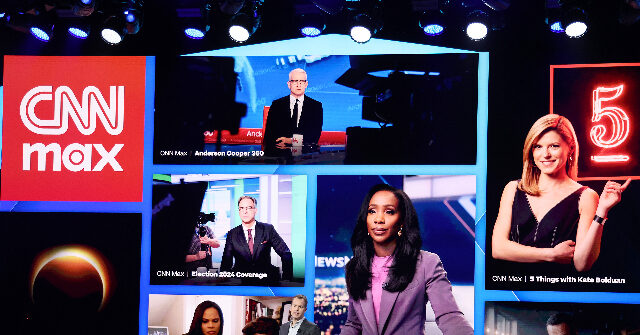
After laying off thousands in the wake of the Discovery and Warner Bros. merger of 2022, another 1,000 job cuts are on the way.
“Sources tell [the far-left] Variety that nearly 1,000 employees will be laid off across a few sectors in a new cost-cutting move at WBD, including finance, business affairs, production and at streamer Max.”
The reports adds, “The insider says the vast majority of the eliminations were in the finance division, with less than 10 Max staffers affected in total.”
This is all about boosting the Warner Bros. Discovery (WBD) stock price, which is in the toilet at less than $9 per share. Another idea floated by the studio involves splitting the streaming business and movie business from its cable TV networks.
More:
Warner Bros. Discovery (NASDAQ:WBD) is evaluating several strategic options, including selling assets or splitting its Max streaming service and movie studio businesses from its legacy TV networks, people familiar with the matter told the Financial Times, sending its stock up 4.9% premarket on Thursday.
The media giant’s CEO David Zaslav is looking into spinning off its streaming and studio businesses into a separate company. WBD’s (WBD) TV group would be saddled with most of its $39B debt load, giving the faster-growing streaming and studio business more flexibility to invest in growth.
“WBD (WBD) has been struggling with a weaker advertising market, high costs related to streaming, Hollywood strikes, and some costly flops,” the report adds. “Its stock declined 32.4% over the past year, with a third of its market capitalization wiped out in that period.”
All of these media companies are struggling, and the primary reason is the death of cable/satellite TV (CSTV).
For decades, CSTV worked as affirmative action for the big studios. There was no merit involved in making a profit. If you paid for a CSTV package that included one of their networks—and about 100 million of us did—the studios made billions whether or not you watched that network. These are called carriage fees and carriage fees are why basement-rated outlets like CNN, the Disney Channel, MTV, and the rest are able to stay afloat. These networks would never survive on merit—which is either advertiser revenue based on ratings or direct subscriptions, like HBO, Showtime, etc.
As people move to streaming, they are canceling their CSTV packages by the tens of millions. All that free money is drying up. And there is nowhere near as much money in streaming because, unlike CSTV, there is actual competition for your streaming dollars. CSTV can gouge its customers because you have nowhere else to go. Not true with streaming. Netflix, Disney+, etc., have to attract you and keep you. You have options like Paramount+, Hulu, not to mention all that awesome free streaming on Roku TV, FreeVee, Pluto, and Tubi. REAL competition means lower prices. This in turn means merit-based programming must return. Unlike CSTV, with streaming, if you don’t want to watch, they do not get paid because you will not subscribe. And that, of course, is the exact opposite of how CSTV works.
CSTV is/was the one-legged stool holding these left-wing multinational corporations up, and now that leg is deteriorating, and merit is required to make money and the studios are filled with personnel who feel only contempt for their customers, so it’s all coming apart.
And it is glorious.
John Nolte’s first and last novel, Borrowed Time, is winning five-star raves from everyday readers. You can read an excerpt here and an in-depth review here. Also available in hardcover and on Kindle and Audiobook.